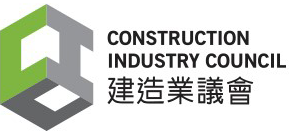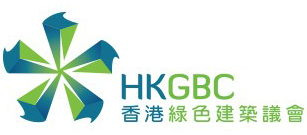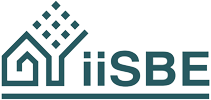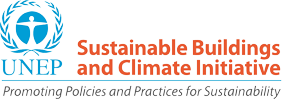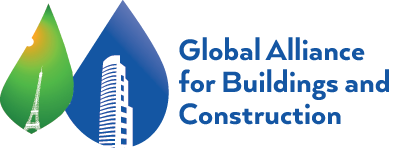
The Roundtable Sessions at WSBE17 Hong Kong echo with the conference theme “Transforming Our Built Environment through Innovation and Integration: Putting Ideas into Action”. Roundtable 1 emphasises “Ideas” on emerging trends and forward-looking principles to transform the build environment. Roundtable 2 focuses “Actions” and practice-focused viewpoints on leading the changes to drive the sustainable built environment.
Roundtable 1: Emerging Perspectives for Transforming the Built Environment
The construction and real estate sector faces multiple challenges that the solutions today may not be optimal for the future. The knowledge of emerging trends is thus indispensable for the development of innovative and integrative solutions to transform the built environment.
On 5 June (Day 1 afternoon), a group of international industry experts and representatives from various stakeholder groups will gather to stimulate a vibrant dialogue to discuss how the emerging perspectives relate to the topics of high-performance building, deep building renovation, sustainable neighbourhood and community empowerment along the topics of:
- Winning the Battle Against Climate Change
- An Emerging Trend of Green Building Development in China
- Towards Buildings as Active Agents in Low Carbon Cities
- Disruptive Innovations Transforming Sustainable Built Environment
Session Chair
 |
|||
|
Prof. Thomas LÜTZKENDORF
|
Prof. Thomas LÜTZKENDORF
Director, Centre for Real Estate and Head of Chair, Sustainable Management of Housing and Real Estate, Karlsruhe Institute of Technology (KIT), Germany
Biography
Thomas LÜTZKENDORF, Prof. Dr.-Ing. habil, is director of the Centre for Real Estate at Karlsruhe Institute of Technology (KIT). He holds a PhD (1985) and Habilitation (2000) in the area of implementing sustainable development principles within the construction sector. Within the scope of teaching and research activities he is concerned with questions relating to the integration of sustainability issues into decision making processes along the life cycle of buildings. Prof. LÜTZKENDORF is a founding member of iiSBE and involved in standardisation activities at European (CEN TC 350) and international (ISO TC 59 SC 17) level.
Speakers
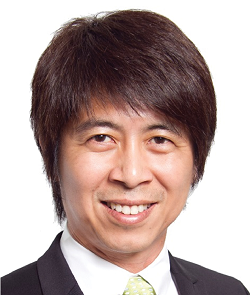 |
 |
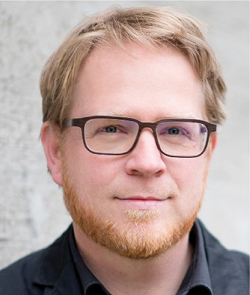 |
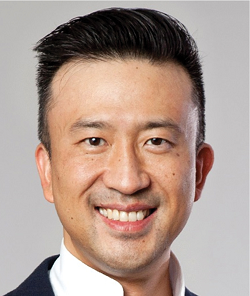 |
|
Ar. TAI Lee-siang
|
Prof. WANG Youwei
|
Prof. Arno SCHLUETER
|
Ar. Bryant LU
|
Ar. TAI Lee Siang
Chair, WorldGBC
Topic: Winning the Battle Against Climate Change
WorldGBC represents a body of diverse building industry players seeking to overturn the threat posed by Climate Change. This presentation provides an outline of the main strategies and thrusts of the relatively young global organization. In addition, Lee Siang will share from his experiences, both as an architect and urban planner, the holistic principles to unlock the potential of traditional wisdom and ground up efforts to achieve total sustainability. In particular, he will focus the discussion on strategies in cities – the highly urbanized future of mankind.
Biography
Mr TAI graduated with honours from NUS in 1987 and has practiced as architect and urban planner since 1990. His key projects won both local and international award and was featured in URA exhibition “20 under 45” in March 2004.
In 2011, he was elected as President of Singapore Green Building Council. Under his leadership, the first green building product certification scheme in Singapore was established. In 2013, he was officially appointed as a Board Director of World Green Building Council and was subsequently elected as Chairman in 2016.
Prof. WANG Youwei
Chairman, China Green Building Council
Topic: An Emerging Trend of Green Building Development in China
Biography
Prof. WANG Youwei is currently the Chairman of China Green Building Council, Member of the Science and Technology Council of the Ministry of Housing and Urban-Rural Development (MOHURD), Member of the Expert Consulting Group for the Beijing Municipal Government, and the Deputy Director of Expert Committee of the China Construction Industry Association. Prof. WANG’s main research interests include the Evaluation Standard for Green Building in China, Low Carbon City Development, Utilization of Urban Underground Space and the Earthquake Structural Engineering.
Prof. Arno SCHLUETER
Professor, Architecture and Building Systems ETH Zurich
Principal Investigator, Future Cities Laboratory, Singapore ETH Centre
Topic: Towards Buildings as Active Agents in Low Carbon Cities
For future-proof cities, buildings need to evolve from passive consumers to active agents in the urban fabric, balancing and trading energy, resources and fostering comfort, indoors and outdoors. This can be facilitated through new concepts, technologies and processes.
The presentation will highlight relevant challenges towards realization related to current and future technology, increasing complexity of systems for sustainable supply and their integration into design and planning processes.
Biography
Arno SCHLUETER holds a degree (Dipl.Ing.) in Architecture from the Technical University of Karlsruhe, a postgraduate degree in computational design and a PhD in building systems from ETH Zurich. In 2010, he was appointed Assistant Professor and in 2014 Professor of Architecture and Building Systems (A/S) at the Institute of Technology in Architecture (ITA), ETH Zurich. Since 2013, he is also Principal Investigator at the Singapore-ETH Future Cities Lab (FCL). In his research, he focuses on the integration of energy and indoor environmental systems into buildings and districts using computational approaches and physical prototypes. In 2009, he co-founded the design and engineering office KEOTO.ch, where he is part of the management board.
Ar. Bryant LU
Vice Chairman, Ronald Lu and Partners
Topic: Disruptive Innovations Transforming Sustainable Built Environment
Biography
Bryant is Vice Chairman of Ronald Lu & Partners (RLP); an architectural practice housing over 600 staff across Hong Kong, Beijing, Guangzhou, Shanghai and Shenzhen. He is a graduate from Cornell University and possesses twenty years of experience in architectural design, management and business development.
Bryant is instrumental in leading development and driving changes at RLP and is honoured to contribute in shaping Hong Kong. Under his leadership, RLP gained great recognition – receiving over 130 design awards and being selected as a Top 50 architectural firm by “bd” in 2016, one of the most recognised magazines in the architecture industry.
Roundtable 2: Leadership Driving for the Sustainable Built Environment
Taking place on 6 June (Day 2 afternoon), Roundtable 2 will gather international industry experts, policymakers and corporate leaders to discuss the importance of leadership and how various stakeholders could act to drive changes. The topics are:
- The use of data to showcase outcomes and results to demonstrate environmental, financial and other benefits
- Decision-making tools to clarify and help leaders make sense of different types of challenges
- The case of Singapore and Hong Kong on how government leaders approached developing policies for sustainable buildings and environment
- Experience on how decisions have been made and what will continue to drive change
Session Chair
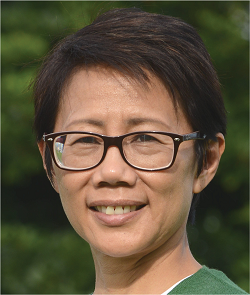 |
|||
|
Ms Christine LOH
|
Ms Christine LOH
Under Secretary for the Environment, The Government of the Hong Kong Special Administrative Region
Biography
Ms Christine LOH was the Chief Executive Officer of the non-profit public policy think tank Civic Exchange prior to joining the HKSAR Government in September 2012. Prior to founding Civic Exchange in 2000, Ms LOH had spent nearly a decade as a politician and member of the Legislative Council (1992-97 and 1998-2000).
Before joining the Legislative Council, Ms LOH held senior regional positions in commodities trading, as well as in project negotiation. Having been very active in public affairs since 1980, she had founded or served on boards of a wide range of non-governmental organisations in Hong Kong and overseas concerning a variety of issues including environmental protection, urban planning and design, and equal opportunity. Ms LOH is a lawyer by training.
Speakers
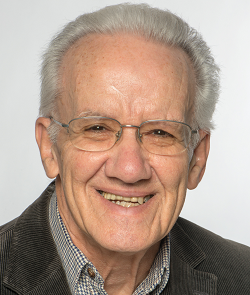 |
.png) |
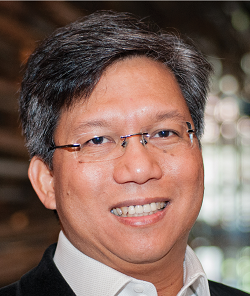 |
 |
|
Dr George BAIRD
|
Mr Douglas WOO
|
Prof. Greg FOLIENTE
|
Mr TAN Tian-chong
|
Dr George BAIRD
Emeritus Professor, Building Science, School of Architecture, Victoria University of Wellington
Topic: Why We Should be Assessing Building Performance from the Point of View of the Users and How It Can Be Done
Biography
Dr George BAIRD, FCIBSE, FIPENZ, is Emeritus Professor of Building Science at the School of Architecture, Victoria University of Wellington, where he specialises in building environmental science, sustainable engineering systems design, and building performance generally.
He received the 1999 NZ Science and Technology Bronze Medal “For singular contribution to energy efficiency of New Zealand buildings and to building performance research” and the 2006 international ‘Pioneers of the World Renewable Energy Network’ Award for “contribution to the world of renewable energy”. In 2016 he was appointed a Fellow of the Architectural Science Association.
Author of innumerable technical papers, his major books include: Energy Performance of Buildings, Building Evaluation Techniques, Architectural Expression of Environmental Control Systems, and most recently Sustainable Buildings in Practice, (Routledge, 2010 and China Architecture & Building Press, 2013), a worldwide survey of sustainable buildings.
For full details see http://www.victoria.ac.nz/architecture/staff/george-baird.aspx
Mr Douglas Woo
Chairman & Managing Director, Wheelock and Company Ltd.
Biography
Mr Douglas WOO Chun-Kuen, JP, is Chairman and Managing Director of Wheelock and Company Limited, a listed property group headquartered in Hong Kong. He was educated in Hong Kong and the United Kingdom before earning a Bachelor degree in Architecture from Princeton University, and was awarded an MBA degree (EMBA Programme) by the HKUST and The Kellogg School of Management of Northwestern University in 2010. In 2016, he was awarded the Honorary Doctor of Humane Letters degree by Savannah College of Art and Design (Hong Kong).
Mr WOO had worked in financial services and real estate prior to joining the Group in 2005. His wide range of civic and public commitments span the areas of business, current affairs, youth and education, environmental conservation, philanthropy, sports and arts.
Prof. Greg FOLIENTE
Enterprise Professor, University of Melbourne
Regional Director in Asia-Pacific, iiSBE
Founding Director, nBLue Pty Ltd
Topic: Innovative and transformative leadership in the built environment – The Cynefin decision-making framework and the search for tipping points
Biography
Prof. Greg FOLIENTE is Enterprise Professor in Sustainable and Resilient Built Environment at the University of Melbourne, the Founding Director of the international consulting practice nBLue Pty Ltd, and the Asia-Pacific Director of the International Initiative for a Sustainable Built Environment (iiSBE). He is also currently a Guest Professor in the EU-based International Master’s and PhD Programme in Sustainable Built Environment. For over twenty years, he was Senior Science Leader at CSIRO, Australia’s national science agency. He has led a number of successful national and international interdisciplinary research programs, represented Australia in a number of official government “missions”, and served as an expert consultant to United Nations agencies (UNEP and UNFCCC), and the Asian Development Bank and the World Bank.
Mr TAN Tian-chong
Deputy Managing Director, Built Environment Research and Innovation Institute, Building and Construction Authority
Topic: Singapore’s drive towards a Sustainable Tropical City
Singapore has been striving towards achieving a sustainable built environment for more than a decade. A number of initiatives were shaped and successfully implemented under the Singapore’s Green Building Masterplans, covering a wide range of policies, programmes and measures. Driven by government leadership through BCA, we have greened (certified through BCA Green Mark standards) over 30% of buildings in Singapore and are on track to achieve our goal of greening at least 80% of our building stock by 2030.
Moving forward, an aspirational goal is set for Positive Energy Low-rise, Zero Energy Medium-rise and Super Low Energy High-rise (PE-ZE-SLE) Buildings in the Tropical Urban City. The government, industry, and academia are jointly developing a technology roadmap to guide the implementation and further spur innovation in green buildings.
Biography
BCA’s Technology Development Group initiates and implements policies and measures to ensure the quality and sustainability of the built environment. The Technology Development Group looks after the BCA Green Mark Scheme and implements the BCA’s Green Building Masterplan which aims to green 80% of Singapore’s buildings by 2030. The Technology Development group also runs the construction quality assessment system (CONQUAS) and the Quality Mark scheme to assess the workmanship quality of building projects in Singapore.
Tian-chong is currently Deputy MD of the Build Environment Research and Innovation Institute in BCA. He oversees the Research and Innovation programmes which are of strategic importance to BCA and the built environment. These include building energy efficiency, smart and green building technologies and construction quality and productivity. Key programmes include the $52 million GBIC (Green Building Innovation Cluster) project and the Sky Lab (the world’s first highrise rotatable laboratory for the Tropics) aimed at accelerating the test-bedding and demonstration of latest building technologies in actual building settings.
Tian-chong is an Honorary Advisor of the Singapore Green Building Council (SGBC). He is a committee member of the Singapore Compact for CSR management and a member of the Advisory Board of BCA Centre for Sustainable Buildings Ltd. He was a member of the Singapore Standards Council and the Deputy Chairman of the Building and Construction Standards Committee and a Past President of the Singapore Structural Steel Society (SSSS).
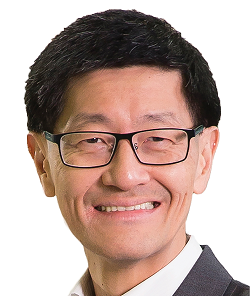 |
|||
|
Mr Lincoln LEONG
|
Mr Lincoln LEONG
Chief Executive Officer, MTR Corporation
Topic: Building Inclusive and Sustainable Communities through Transit Integration
Hong Kong’s experience in building sustainable and inclusive communities through transit integration may have relevance to cities around the world that are facing challenges arising from urbanisation. It is an example of how `value capture’ principles can be adopted in an urban environment to help cities meet their development needs for housing and transportation in ways that are user-friendly, and also financially and environmentally sustainable.
In Hong Kong, the MTR Corporation’s railway services form the backbone of the local public transport system, carrying around 5.6 million passenger journeys every weekday with a world-class on-time performance of 99.9%.
Residential and commercial properties have been developed above or adjacent to railway stations and depots to create communities that are fully integrated with the railway network, and also offer a range of facilities and services to meet the diverse needs of individuals of all ages.
In this way, Hong Kong has evolved an integrated rail and community development model that is financially and environmentally sustainable for the long term. Through integrated station development, railway patronage is stimulated, profits from property sales can be used to finance new railway projects, and fares can thus to kept at reasonable levels without the need for government subsidies.
The model follows a transit-oriented development approach centred around a high-quality low-carbon railway service, which connects to bus, minibus, tram and taxi services. Building residential and commercial properties above railway stations optimises the use of scarce and valuable land in an urban environment. Seamless transport connections provide maximum convenience for people living and working above the stations, while unnecessary road traffic is also reduced.
To promote sustainable building design, construction, operations and maintenance, new residential property developments are required to achieve Hong Kong BEAM Plus Gold certification as a minimum.
Biography
Lincoln LEONG Kwok-kuen has been the Chief Executive Officer (‘CEO’) of MTR Corporation and a Member of the Board of Directors since 2015 and a Member of the Executive Directorate since 2002. Mr LEONG is responsible for the Company’s overall performance in and outside of Hong Kong. He joined the Company in 2002 as Finance Director, and was re-titled as Finance & Business Development Director in 2008. He was appointed as Deputy CEO in 2012 and Acting CEO in 2014. Prior to joining the Company, he worked in the accountancy and investment banking industries in London, Vancouver and Hong Kong.



